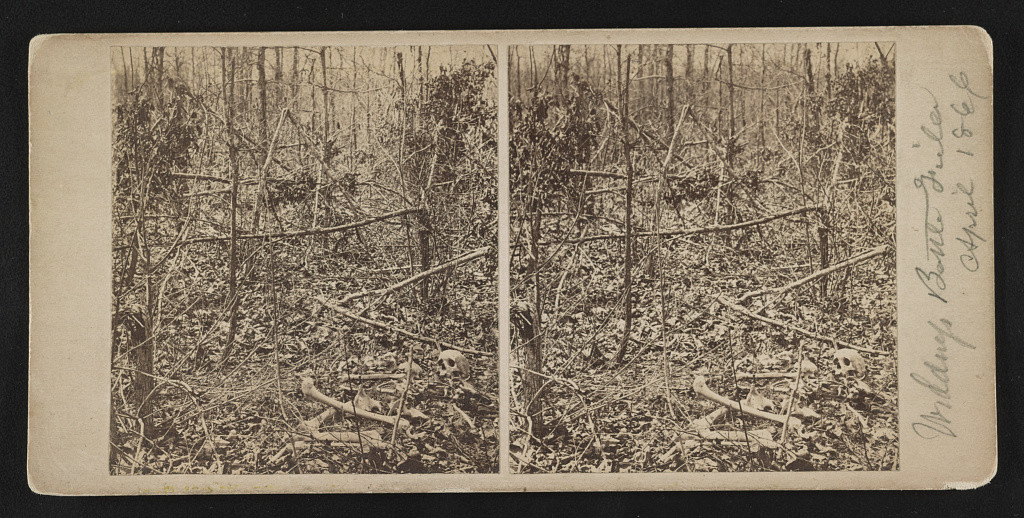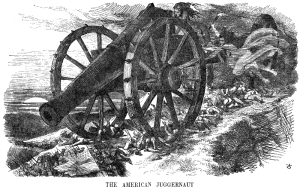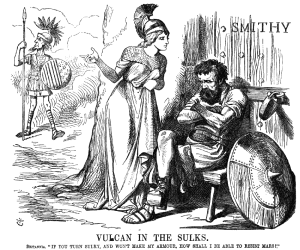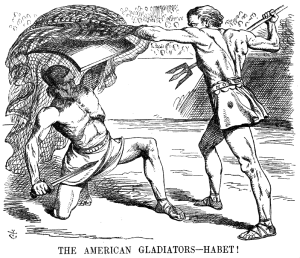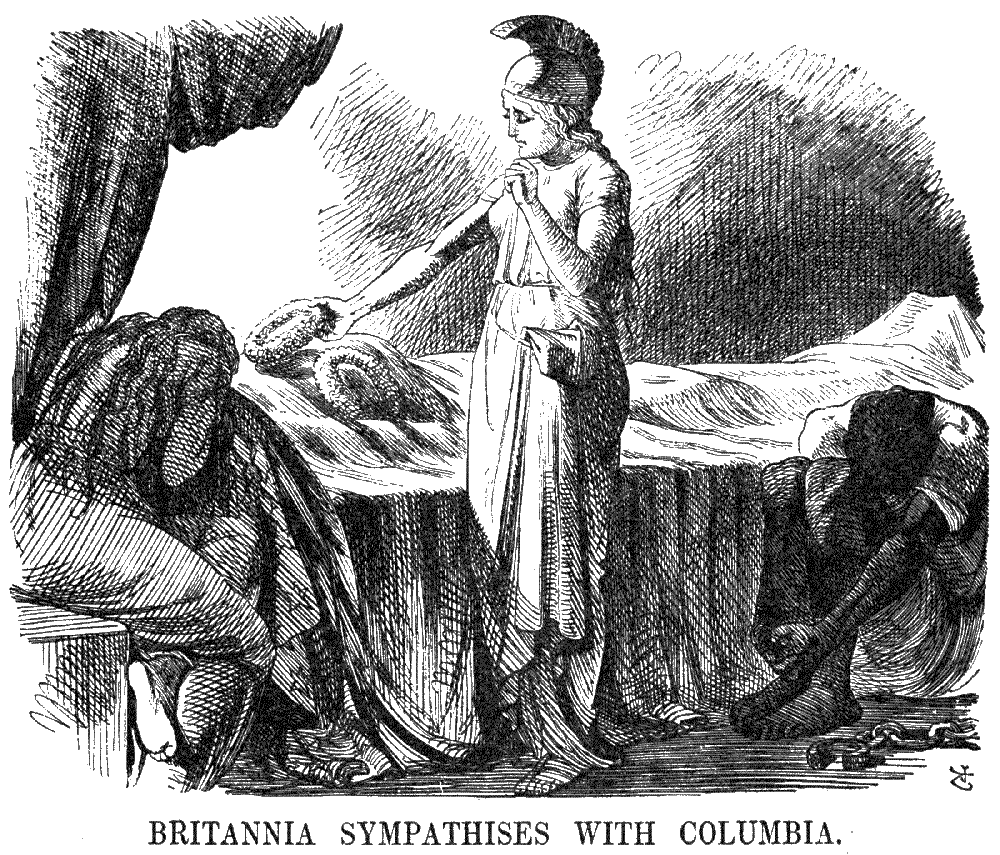After waxing poetical about the horrors of May 1864, an editorial from 150 years ago seemed to be thankful for peace and quite certain that a positive result of the war was that foreign nations would never dare invade the re-united United States.
From a Seneca County, New York newspaper in May 1865:
Peace.
What different month of May from the last now breaks upon the woods and valleys and streams of the Wilderness and Spottsvlvania. Where peace now reigns alone in blossom and song, there the armies ef [sic] the Potomac and Virginia, in one continued “red shock of battle blent,” together strewed the field, and crowded the hospital, with the wrecks of fifty thousand men. What a contrast now to that high carnival of death in which the rifle proved more deadly than the cannon, in which men shot at each other with deliberate aim, or in sweeping volley, from amidst thickets of brushwood, from behind sheltering trees, from across narrow brooks – in which hundreds fell at a blow, and blows ceased not for hours, and the fire flashed less in jets than in sheets of flame, and the bullets raised a tempest from side to side, wherein nothing mortal could live, until at last the storm was exhausted by its fury, with its purpose unfulfilled. And yet all that was month’s work of a four year’s war.
It is a privilege beyond all estimate that we are at last permitted to reckon this war among the things of the past. God grant that this fair continent may never again be reddened by the like of it – that the peace which we have no conquered shall be perpetual against rebellion and all internal violence. Foreign invasion can never happen to us. A wall of brass, reaching to the clouds, could not shield us from that more completely than will the memory of American prowess displayed in this war. There will never be blood stains here that are not made by our own rebellious hands. After the horrors which have been experienced, how can that be? It seems beyond the utmost limits of human madness. – Elmira Gazette.
Fifty-four years later, in the introduction to From the Rapidan to Richmond and the Spottsylvania Campaign (page xii), Thomas Nelson Page agreed that the Civil War developed America’s military prowess but not just to defend itself – America had been able to proactively rescue the world at war:
Thus, it came about that I promised that when he [William Meade Dame, D.D.] should be ready to publish his reminiscences I would write the introduction for them. My introduction is for a story told from journals and reminiscent of a time in the fierce Sixties when, if passion had free rein, the virtues were strengthened by that strife to contribute so greatly a half century later to rescue the world and make it “safe for Democracy.”
It was the war—our Civil War—that over a half century later brought ten million of the American youth to enroll themselves in one day to fight for America. It was the work in “the Wilderness” and in those long campaigns, on both sides, which gave fibre to clear the Belleau Wood. It was the spirit of the armies of Lee and Grant which enabled Pershing’s army to sweep through the Argonne.
Rome, March 27, 1919.
The cartoons from London Punch would seem to indicate that Britain was aware of America’s increasing might. Nevertheless, in its May 6, 1865 issue it was able to commiserate with America in mourning the assassination of President Lincoln:

